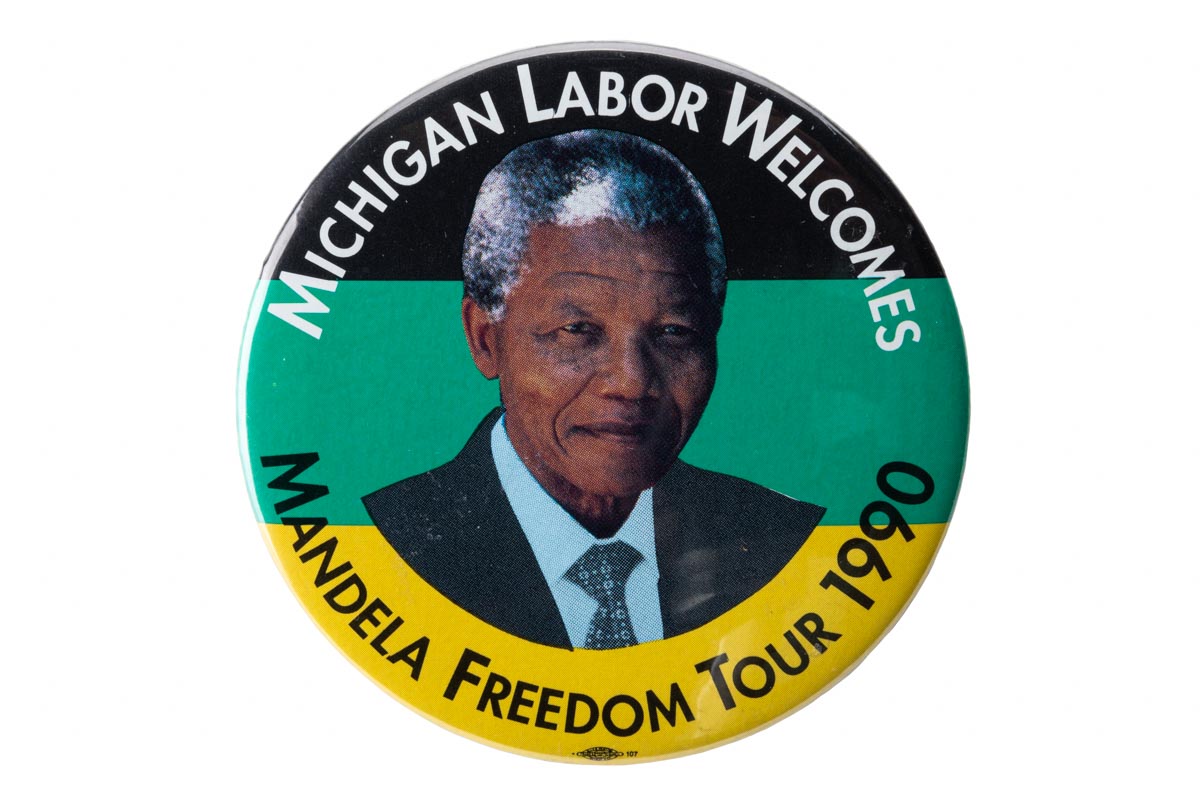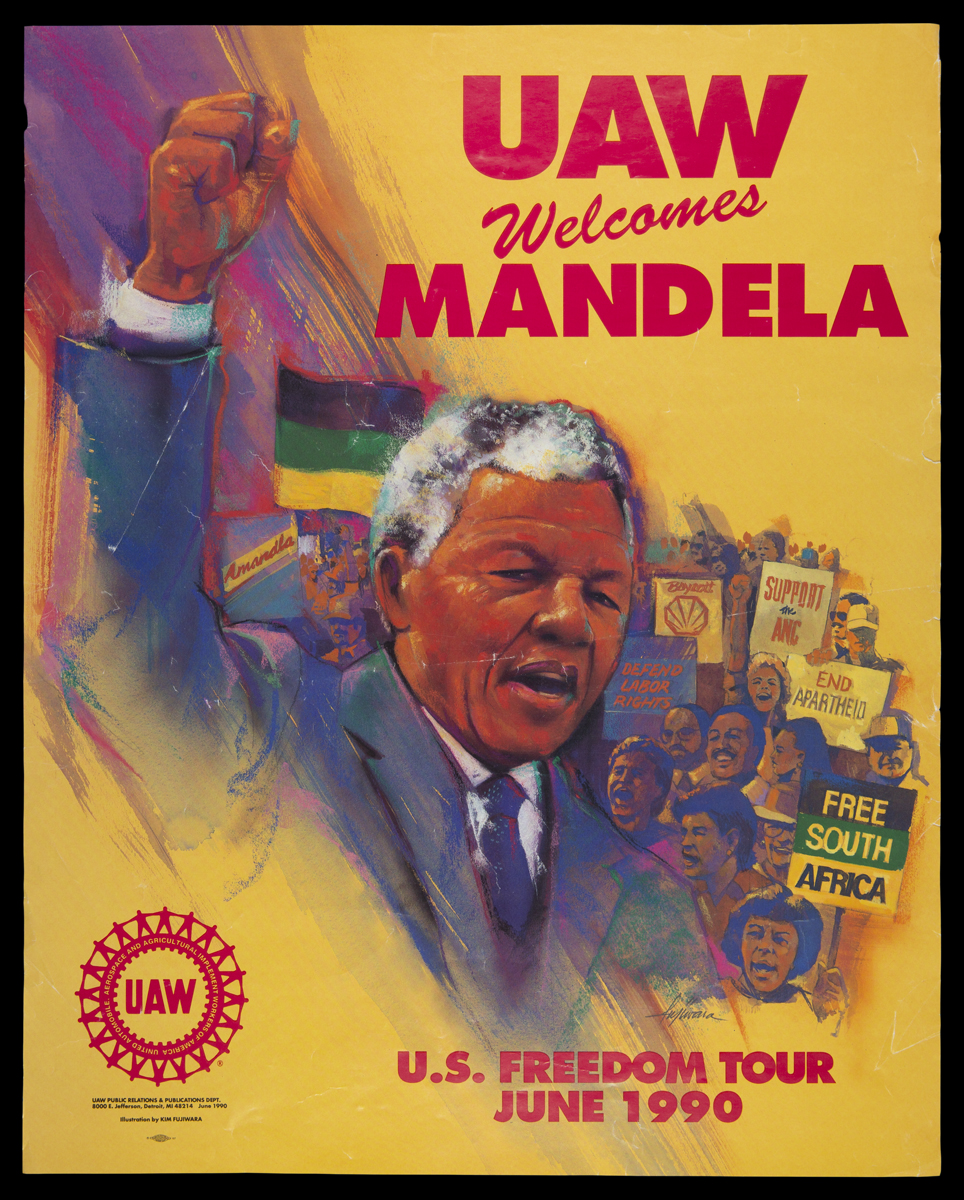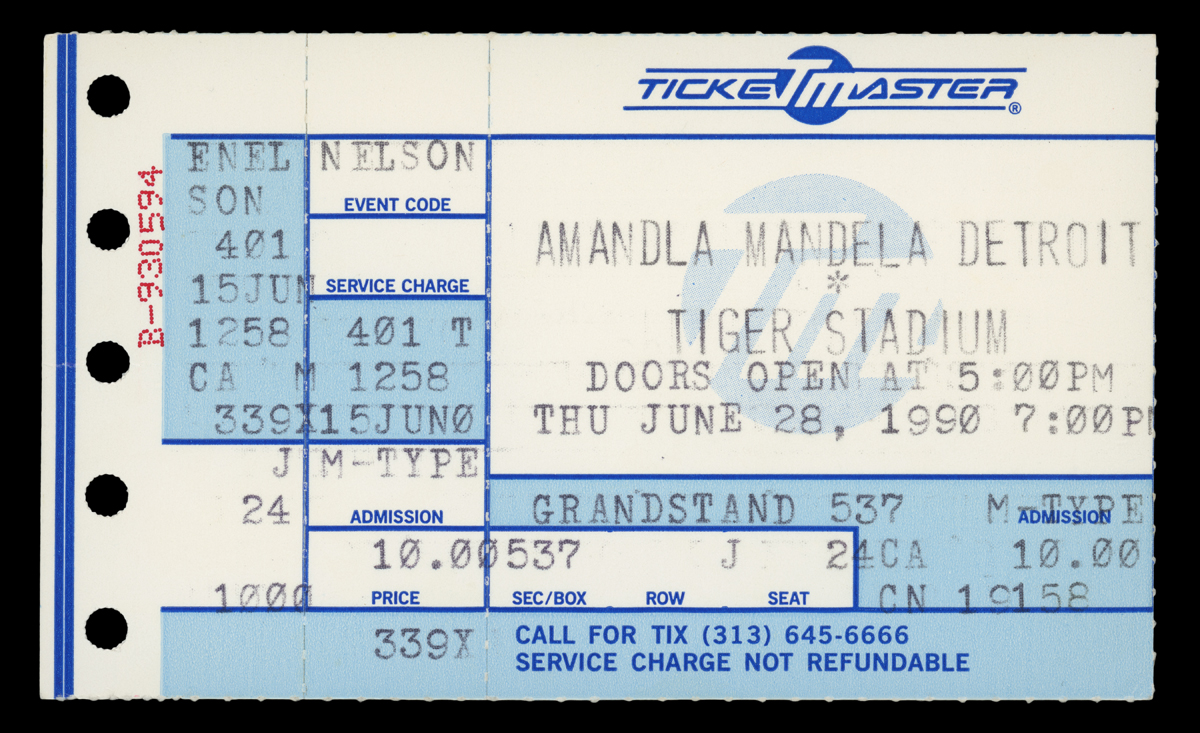Unions and Mandela: A Fight for Equality
| Written by | Heather Bruegl |
|---|---|
| Published | 10/24/2023 |
Unions and Mandela: A Fight for Equality
| Written by | Heather Bruegl |
|---|---|
| Published | 10/24/2023 |
Detroit. What comes to mind when you think about Detroit? Cars. Motown, of course! Labor unions. All these make sense, but do you also think of Nelson Mandela? Probably not. And United Auto Workers (UAW) support of Mandela? It probably never even crosses your mind. For most people, the first and frequently only thought that comes to mind is apartheid and Mandela's fight to stop the practice in South Africa.
Mandela was a union man. When he was president of South Africa (1994-1999), he declared, "The kind of democracy that we all seek to build demands that we deepen and broaden the rights of all citizens. This includes a culture of workers’ rights." He understood the importance of unions and the rights of workers. He knew that the organization of workers was vital to having a free and just society.

Button welcoming Nelson Mandela to Detroit on his 1990 Freedom Tour. / THF196997
As he rose to power, unlike many other politicians, Mandela never broke his bond with labor unions. Until his death, he remained the honorary president of South Africa’s National Union of Mineworkers. Labor unions held a place in Mandela’s heart for his entire lifetime. He supported and believed in them because they were there for him when he needed support.
In 1956, after the American Federation of Labor and the Congress of Industrial Organizations (AFL-CIO) merged, one of the first things they did was issue a statement condemning apartheid and racial segregation in South Africa. In 1978, almost a decade before Congress put sanctions in place, the UAW withdrew its funds from banks that continued to retain ties with apartheid leaders.

“UAW Welcomes Mandela: U.S. Freedom Tour” poster. / THF711466
In 1990, Nelson Mandela came to Detroit, or "Motortown," as he referred to it. On what was dubbed the Freedom Tour, Mandela traveled around the United States, visiting 8 cities. He visited Boston, New York and Los Angeles, but Detroit was unique. He was greeted at the airport by then-Detroit Mayor Coleman Young, federal judge Damon Keith and civil rights icon Rosa Parks. He toured the Ford Motor Company Rouge Factory.
Workers at the Rouge stopped work, and the machines quieted. They put up banners to welcome Mandela to the factory. This was UAW Local 600; early on, they were militantly opposed to apartheid. Local 600 is a historic chapter of the UAW, formed in August 1938, and had its first national agreement with Ford Motor Company in June 1941. Mandela felt a kinship. These were fellow freedom fighters. He told them, “It is you who have made the United States of America a superpower, a leader of the world.”
The UAW president at the time, Owen Bieber, presented Mandela with a UAW lifetime membership card, with Mandela stating: Sisters and brothers, friends and comrades, the man who is speaking is not a stranger here. The man who is speaking is a member of the UAW. I am your flesh and blood.
On December 5, 2013, at the age of 95 years, Nelson Mandela died. The world mourned. The UAW was such a part of the life of Nelson Mandela that they released a statement. They acknowledged the civil rights leader and social justice advocate that he was. The statement said, “It was an incredible honor for the UAW, through the leadership of then-President Owen Bieber, to play a role in supporting Mandela and other anti-apartheid activists in the 1980s. …when Mandela toured the United States in 1990 after his release from prison, he insisted on celebrating with UAW Local 600 in Dearborn, Mich. Nelson Mandela will be missed by those who believe in civil and human rights for all people. The best way to honor his passing is to continue to work for his ideals. We are committed to doing so."

Ticket stub for Nelson Mandela’s 1990 rally at Tiger Stadium. / THF 711464
The legacy of Nelson Mandela lives on in the continued struggle for labor rights now more than ever. Mandela never forgot the workers. He never forgot the backbone of the nations. They were there for him, and he was there for them. He stood for civil rights and social justice for all people. During his visit to Detroit, speaking to a crowd at the old Tiger Stadium, he said, “Let us together join hands in the struggle against racism, injustice and national oppression. Let us together defend with all our might the human rights of all people."
Heather Bruegl (Oneida/Stockbridge-Munsee) is curator of political and civic engagement at The Henry Ford.
Series | |
|---|---|
Themes |
